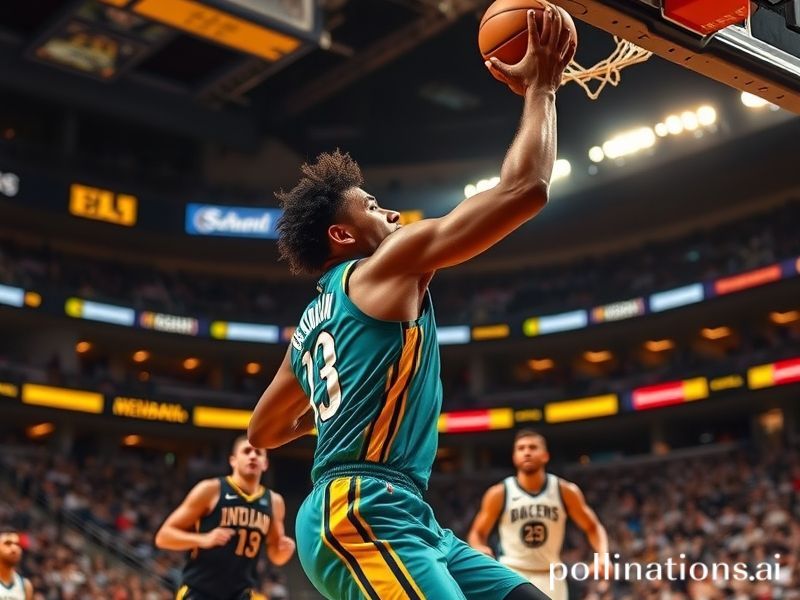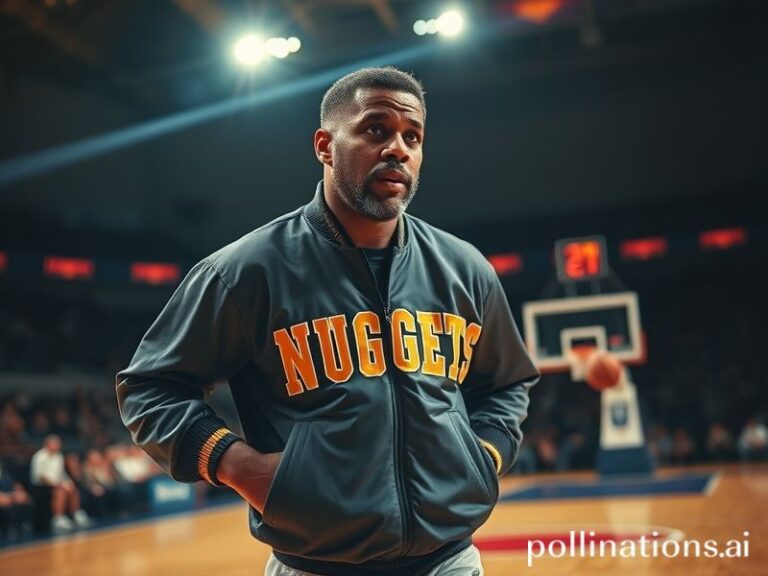Malcolm Brogdon: The NBA’s Quiet Mercenary Who Became a Globalization Case Study
Across oceans and borders, in the smoky backrooms of Geneva think-tanks and the fluorescent glare of Seoul sports bars, the name Malcolm Brogdon has started to carry the faint whiff of geopolitical metaphor. Not because the 6’4″ guard can single-handedly reboot supply chains or lower global interest rates—heaven forbid we inflate another athlete into a savior—but because his quietly mercenary career arc maps, with almost comic precision, onto the late-capitalist playbook of “asset optimization” currently being Xeroxed from Brussels to Bangalore.
Let’s begin in Milwaukee, where Brogdon once arrived as the 36th pick in 2016, a second-rounder so polite he apologized for being drafted at all. The Bucks, then still clinging to the quaint idea that a small-market franchise could contend without mortgaging three generations of draft picks, deployed him as a Swiss-army combo guard. He responded with the first 50-40-90 season by a rookie since sliced bread was invented—an achievement that delighted analytics monks in Boston while leaving Greek Freak souvenir salesmen in Piraeus utterly indifferent. The trophy he took home was called Rookie of the Year; the trophy the Bucks took home was a second-round exit and a creeping sense that goodwill alone doesn’t pay the luxury-tax bill.
Fast-forward to Indiana, where the Pacers flipped first-round picks like poker chips to acquire Brogdon’s services in 2019. The move was heralded as proof that Indianapolis, too, could participate in the global arms race for competent playmaking—provided it stapled enough draft equity to the trade package. Brogdon responded by morphing into the league’s most erudite triple-double threat since someone taught Boris Diaw how to use Instagram filters. He also started the Hoops2O initiative, drilling water wells in East Africa, thereby allowing American reporters to type “Malcolm Brogdon” and “noble” in the same paragraph without their keyboards catching fire.
Yet the international subplot thickened this summer when Boston, a franchise that treats second-round picks the way most people treat leftover Halloween candy, lured Brogdon to Beantown for a pittance of fringe prospects. Overnight, the Celtics’ bench—previously less reliable than a Russian gas pipeline—acquired the reserve firepower of a NATO quick-reaction force. From Lagos to Lisbon, hoop nerds opened their League-Pass apps and murmured the same dark thought: if Boston’s “best five” now includes Brogdon as sixth man, the rest of the Eastern Conference may as well apply for asylum.
What makes the transaction deliciously cynical, of course, is timing. The NBA’s new collective bargaining agreement—drafted in the same spirit as the Treaty of Versailles, minus the reparations—threatens draconian penalties for teams that overspend. Boston’s front office, staffed by MIT grads who calculate cap sheets the way hedge funds calculate carbon offsets, realized Brogdon’s bargain salary slots neatly under the apocalypse line. Translation: the Celtics imported a borderline All-Star the way multinational firms import cobalt—cheap, efficient, and with just enough plausible deniability to keep the conscience quiet.
Off the court, Brogdon’s passport is beginning to rival a UN undersecretary’s. He’s toured South Africa with the NBPA, lectured at Oxford on athlete activism, and apparently owns enough bespoke suits to clothe a G7 summit. Teammates describe him as “presidential,” which in 2023 is less a compliment than an existential warning. One suspects that if the water-well initiative ever hits a drilling snafu, Brogdon could broker a side deal with the Sudanese government before halftime.
And so we arrive at the broader significance: Malcolm Brogdon is the rare athlete whose career functions as a low-stakes parable of globalization. Drafted in one economy, optimized in another, exported to a contender, and repurposed for philanthropic soft power—his stat line is less basketball box score than customs declaration. Somewhere in Davos, a consultant is already pitching “The Brogdon Model” to Fortune 500 executives seeking to re-label cost-cutting as moral leadership. The rest of us, meanwhile, can only watch the Celtics’ second unit dissect opponents with the polite savagery of an offshore tax strategy and wonder whether we, too, are merely assets awaiting the next liquidity event.
In the end, Brogdon will probably never average 30 points; he’ll just keep making the right pass, drilling the right well, wearing the right suit, and cashing checks that look suspiciously like thank-you notes from the global elite. If that isn’t a perfect summary of our times—competence weaponized for the greater glory of cap space—then I’ll eat my press credential.







